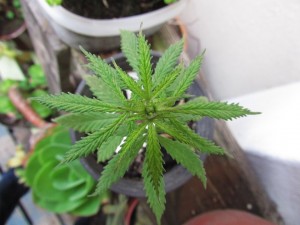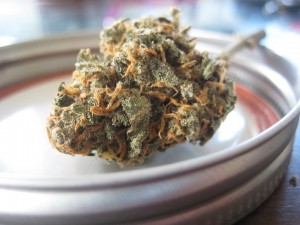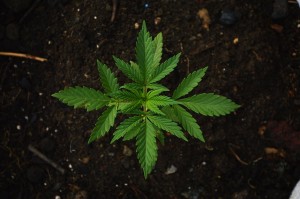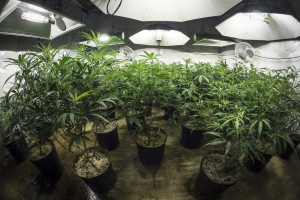 When it comes to the legal marijuana industry, many people assume it’s a small, struggling group of people. While it’s true that the industry has encountered many obstacles and likely has more to face in the future, you might be surprised to hear that the industry is a lot bigger than you previously believed. For example, if your living in one of the legal marijuana states, it might actually be easier for you to find someone to recommend and sell you cannabis than to find a dental hygienist.
When it comes to the legal marijuana industry, many people assume it’s a small, struggling group of people. While it’s true that the industry has encountered many obstacles and likely has more to face in the future, you might be surprised to hear that the industry is a lot bigger than you previously believed. For example, if your living in one of the legal marijuana states, it might actually be easier for you to find someone to recommend and sell you cannabis than to find a dental hygienist.
According to Marijuana Business Daily, “Cannabis-related businesses now employ more people than there are dental hygienists and bakers in the United States and will soon surpass the number of telemarketers and pharmacists.”
The Bureau of Labor Statistics revealed that there are 204,000 individuals employed as dental hygienists. As of the beginning of this summer, the marijuana industry has 165,000-235,000 full- and part-time workers. Based on the estimates published in the newly released Marijuana Business Factbook 2017, this employment data includes retailers, wholesale grows, infused products/concentrates companies, testing labs and ancillary firms. Impressive, considering that the marijuana industry has only been operating legitimately for a few years (since 2009).
On July 1st, Nevada joined the list of states that have legalized recreational marijuana. This makes them the fifth state – among Colorado, Oregon, Washington and Alaska – to open dispensaries to recreational users. California, Maine and Massachusetts also past recreational measures in November, but are still finalizing their rules.
This growth in the cannabis industry is accompanied by the expectation that the industry’s employment will boom as well. Over Fourth of July weekend in Nevada, for example, recreational legalization led to as many as 1,000 customers each day. Estimates from business intelligence firm, New Frontier Data, anticipate that the market for legal weed may create as many as 250,000 new jobs by 2020.
At the moment, the majority of the jobs in the marijuana industry are small businesses. The state-by-state nature of the marijuana industry has prevented many of these businesses from developing into large-scale enterprises that employ hundreds of people. For now, theses small businesses only require a handful of employees to maintain their daily operations.
Even so with the growth of the industry, these businesses struggle to find basic business services, like flexible business funding options and payment processing. With the high-risk categorization of the industry, most traditional providers won’t touch marijuana merchants. This is where alternative providers like Marijuana Merchant Account have stepped in to help. As a high-risk specialist, MMA specializes in providing these merchants with business financing and payment processing solutions.
The hope is that, in time, more and more providers will except cannabis merchants, considering that the industry could explode to $50 billion in the next decade.


 Many in the marijuana industry were optimistic when they read the recent report from the U.S. Department of The Treasury’s Financial Crimes Enforcement Network (FinCEN). This report revealed a sizeable increase in the number of banks and credit unions providing financial services to legal marijuana business. In FinCEN’s latest Marijuana Banking Update, 368 depository institutions were “actively banking marijuana businesses in the United States” at the end of the first period (March 31).
Many in the marijuana industry were optimistic when they read the recent report from the U.S. Department of The Treasury’s Financial Crimes Enforcement Network (FinCEN). This report revealed a sizeable increase in the number of banks and credit unions providing financial services to legal marijuana business. In FinCEN’s latest Marijuana Banking Update, 368 depository institutions were “actively banking marijuana businesses in the United States” at the end of the first period (March 31). When thinking of lucrative medical marijuana states, Illinois may not be the first on your list. However, in the last year Illinois has sold more than $24 million in medical marijuana. Yes – it is all taxed and the state is reaping the massive benefits. So, if everyone reaps the benefits, what is the problem with having
When thinking of lucrative medical marijuana states, Illinois may not be the first on your list. However, in the last year Illinois has sold more than $24 million in medical marijuana. Yes – it is all taxed and the state is reaping the massive benefits. So, if everyone reaps the benefits, what is the problem with having  Of all the issues people can have with pot, the last thing you would think about is the packaging, right? Well, in Florida lawmakers and citizens are in an uproar over the “candy-like” and “cutesy” packaging of pot. Let’s rephrase that a bit: This pot isn’t yet legal, but there are still people clamoring over the possibility, thanks to the vague laws that are being voted on in a few days. So, what’s a Floridian to do? Well, vote for one, and secondly, pay attention to the laws.
Of all the issues people can have with pot, the last thing you would think about is the packaging, right? Well, in Florida lawmakers and citizens are in an uproar over the “candy-like” and “cutesy” packaging of pot. Let’s rephrase that a bit: This pot isn’t yet legal, but there are still people clamoring over the possibility, thanks to the vague laws that are being voted on in a few days. So, what’s a Floridian to do? Well, vote for one, and secondly, pay attention to the laws. All it took was one trip for a Tennessee lawmaker to decide that legalized marijuana was a good idea for his state. Representative Jeremy Faison said that his mind changed after a trip to Colorado a few months ago. Since neighboring state Georgia has legalized CBD oil for medicinal use (for certain ailments), he wants his state to be next in line. This is a great idea – but with all great ideas, this isn’t going to be an easy task.
All it took was one trip for a Tennessee lawmaker to decide that legalized marijuana was a good idea for his state. Representative Jeremy Faison said that his mind changed after a trip to Colorado a few months ago. Since neighboring state Georgia has legalized CBD oil for medicinal use (for certain ailments), he wants his state to be next in line. This is a great idea – but with all great ideas, this isn’t going to be an easy task. As Arizona,
As Arizona,  Vermont Governor, Peter Shumlin, called for the state to legalize marijuana through the legislative process, and not the ballot box. In his State address, the governor said that over 80,000 Vermonters reported using marijuana in 2015. This he claims is only making illegal drug dealers money that the state would use for the citizens. Gov. Shumlin suggested a move to begin step by step marijuana legislation to harness marijuana dollars.
Vermont Governor, Peter Shumlin, called for the state to legalize marijuana through the legislative process, and not the ballot box. In his State address, the governor said that over 80,000 Vermonters reported using marijuana in 2015. This he claims is only making illegal drug dealers money that the state would use for the citizens. Gov. Shumlin suggested a move to begin step by step marijuana legislation to harness marijuana dollars.
